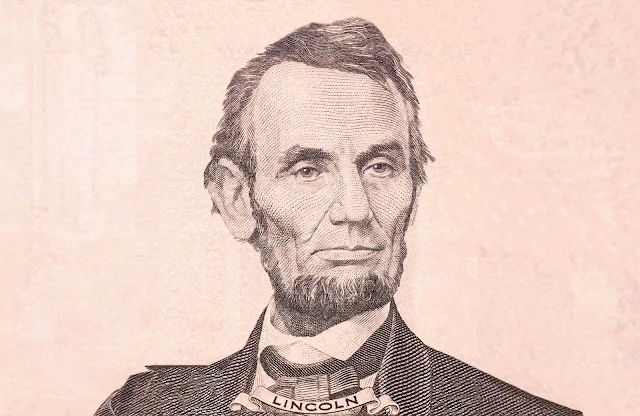EnterLibrary -- Abraham Lincoln, the 16th President of the United States, is a towering figure in American history, renowned for his leadership during one of the nation's most tumultuous periods – the Civil War. Let's embark on a journey through some key highlights of Lincoln's remarkable life.
1. Humble Beginnings
Born on February 12, 1809, in a log cabin in Hardin County, Kentucky (now part of LaRue County), Lincoln's early life was marked by poverty. Despite limited formal education, his innate curiosity and love for learning propelled him to pursue knowledge independently.
2. Lawyer and Statesman
Lincoln's career as a lawyer began in the 1830s, and he swiftly gained a reputation for his honesty and effective advocacy. His entry into politics came as a member of the Whig Party, serving in the Illinois State Legislature and later as a U.S. Congressman.
3. Emancipation Proclamation
Perhaps one of the most defining moments in Lincoln's presidency was the issuance of the Emancipation Proclamation in 1863. This historic executive order declared that all slaves in Confederate-held territory were to be set free. Although its immediate impact was limited, it laid the groundwork for the abolition of slavery.
4. Civil War Leadership
Lincoln assumed the presidency in 1861, just as the nation teetered on the brink of Civil War. His leadership during this tumultuous period was marked by a commitment to preserving the Union. His eloquent speeches, including the Gettysburg Address, have become enduring symbols of American resolve and unity.
"Give me six hours to chop down a tree and I will spend the first four sharpening the axe." Abraham's Quote (Forbes)
5. Gettysburg Address
Delivered in 1863 on the battlefield of Gettysburg, Pennsylvania, Lincoln's brief yet powerful address underscored the principles of equality and democracy. His words, "Four score and seven years ago," resonated with the nation, emphasizing the enduring nature of the American experiment.
6. Homestead Act and Transcontinental Railroad
Lincoln's presidency saw the passage of significant legislation, including the Homestead Act, which provided land to those willing to cultivate it, and the Pacific Railway Act, facilitating the construction of the First Transcontinental Railroad. These measures contributed to westward expansion and economic growth.
7. Assassination and Legacy
Tragically, Lincoln's life was cut short when he was assassinated by John Wilkes Booth on April 14, 1865, just days after the end of the Civil War. His death left an indelible mark on American history, and his legacy as the "Great Emancipator" and a symbol of leadership in times of crisis endures.
8. The Lincoln Memorial
A testament to his enduring legacy, the Lincoln Memorial in Washington, D.C., stands as a tribute to the man who guided the nation through one of its darkest hours. The iconic statue of Lincoln seated in contemplation attracts millions of visitors each year.
9. Nicknames and Cultural Impact
Lincoln is often referred to by various nicknames, including "Honest Abe" and the "Rail-Splitter." His image appears on the U.S. penny, and his life has been the subject of numerous books, films, and cultural references, cementing his place in the collective consciousness.
10. A Complex and Enduring Figure
Beyond the historical narrative, Lincoln's personal complexity, humor, and empathy set him apart. His ability to navigate a nation torn by conflict and lead it toward a more inclusive future make Abraham Lincoln not only a historical figure but a timeless symbol of resilience and leadership.
In the tapestry of American history, Abraham Lincoln's legacy endures as a guiding light through turbulent times. From the humble origins of a log cabin in Kentucky to the hallowed halls of the presidency, Lincoln's journey reflects the quintessential American spirit of perseverance, wisdom, and compassion. His commitment to a united nation, his pivotal role in emancipation, and his ability to articulate the principles of freedom at Gettysburg have left an indelible mark on the fabric of our nation. As we reflect on the life and times of this extraordinary leader, we find not only a historical figure but a timeless beacon of hope, reminding us that even in the darkest hours, great leaders can emerge to shape the course of history and inspire generations to come. Abraham Lincoln, the Great Emancipator, remains an enduring symbol of unity, resilience, and the pursuit of a more perfect union.

